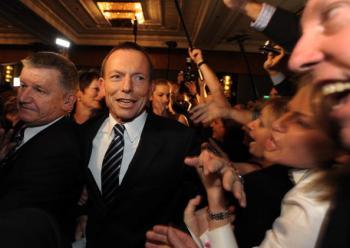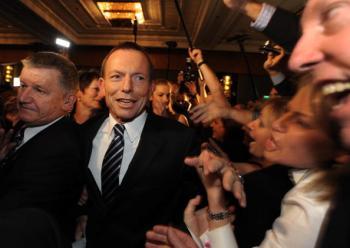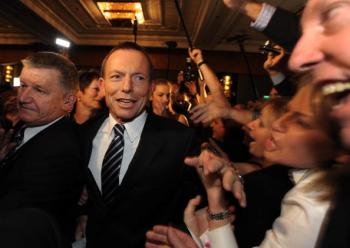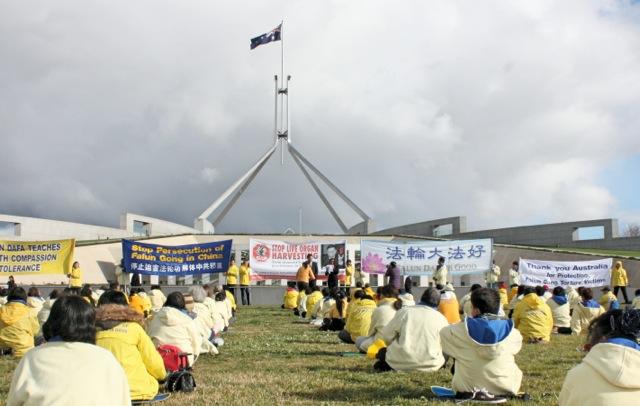Australia Hangs in Limbo After Indecisive Election Result
The fate of Australia’s political landscape hangs in the hands of four Independent MPs.

Opposition leader Tony Abbott arrives at the Official Liberal Party Election Function at the Four Seasons Hotel on August 21, 2010 in Sydney, Australia. Dean Lewins/Getty Images
|Updated:




